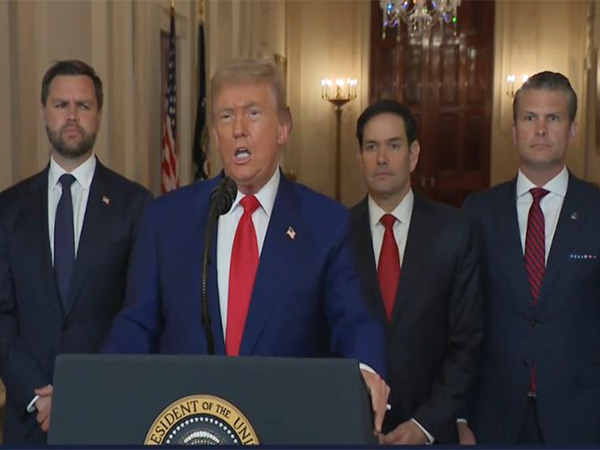Middle East Tensions Escalate: U.S. Strikes Iran's Nuclear Sites Amid Conflict
The conflict between the U.S., Israel, and Iran escalated as President Trump announced overnight airstrikes on Iran's nuclear sites, prompting global reactions and concerns of regional instability. The strikes followed Israel's initial attack, leading to retaliatory missile fire from Iran and worldwide diplomatic urgencies.

In a significant escalation of tensions in the Middle East, U.S. President Donald Trump declared the obliteration of Iran's main nuclear sites following overnight airstrikes. Trump's announcement marks a major shift in foreign policy, aligning with Israel's earlier attack on Iran's nuclear and military facilities.
Tehran has vowed to defend itself, with Iranian Foreign Minister Abbas Araqchi condemning the U.S. actions as violations of international law and the U.N. charter. The conflict, initiated by Israel's strike on June 13, sees Iran responding with missile fire, leading to civilian injuries reported in both Iran and Israel.
Despite Trump's assurances that further strikes are not intended for regime change, the possibility of broader hostilities looms. Meanwhile, diplomatic efforts scramble to de-escalate the situation, with global leaders warning of lasting regional instability amid the rising death toll.
(With inputs from agencies.)
- READ MORE ON:
- Donald Trump
- Iran
- nuclear sites
- U.S. strikes
- Middle East
- Israel
- conflict
- Tehran
- diplomacy
- instability
ALSO READ
Children’s lives ‘turned upside down’ by wars across Middle East, North Africa, warns UNICEF
Hurdles remain, say mediators, as Trump claims Israel agreed to 60-day Gaza ceasefire
Israeli military says it captured 'terrorist cell operated by Iran' in southern Syria
Over 12 Million Children Harmed by Conflict in MENA as UNICEF Sounds Alarm
Surge in Afghans driven from Iran in spy hunt after Israel attacks










